Remembrance: A Mediator Novel Read online
Page 19
“Look, David, it’s nothing. I contacted Shahbaz for a client I’m working with.”
“Suze, don’t even try. I went to Shahbaz’s blog and looked up that curse you asked him about.”
Crap.
“It specifically references the darkness that will be unleashed upon anyone who dares to resurrect a departed soul, and what can happen if the dwelling place of that soul is destroyed. Your ‘client’ is obviously you and Jesse is the soul you resurrected and this has something to do with Paul tearing down our old house. So don’t tell me not to be silly. I’m not a child anymore. And I want to help.”
Wow. I was starting to think that the photo David had sent of himself wearing women’s clothing hadn’t been for fun—or a class on gender studies—after all. David was no longer the awkward nerdy kid I’d privately nicknamed Doc. He was all grown up now, and he wanted to let me know it.
“Okay, fine,” I said. “But, David, there’s nothing you can do. I have it all under control.”
“Oh, do you? Then why did you spend last night at Brad and Debbie’s? You can’t stand Debbie. Last time we had dinner together, you called her a self-centered harpy and said you hope she gets nail fungus under her gel manicure.”
Yikes. I really needed to cool it on the wine. “Okay, well, I might have been having a moment of—”
“Clearly you think the girls are in some kind of danger.”
“They were,” I admitted. “But not anymore. And that had nothing to do with—”
“Does Jesse know Paul bought the house?”
Wow. David was good. Too good. “No, but only because Jesse’s got a lot on his plate right now. He’s still waiting to hear about that grant. I really don’t want to stress him out or bother him right now with inane little—”
“Okay, that’s it,” David said firmly. “I’m changing my ticket and coming home tomorrow instead of next week.”
“What?” I nearly hit the back of the pomegranate truck. “David, no! That’s a terrible idea. It’s totally unnecessary.”
“Unnecessary? Father Dominic is in the hospital.”
“Yes, and being well taken care of. So please don’t—”
“It’s okay. I already turned in all my papers for this semester. I can tell my instructors I have a family emergency.”
Of course he’d already turned in all his papers. He may be a grown-up now, but he hadn’t changed that much.
“David, there’s no emergency. Father Dominic is going to be fine. What happened to him had nothing to do with that, uh, other thing.” I glanced at the girls. Still watching their video, except for Mopsy. I caught her gaze in the rearview mirror as she looked up, realized I was watching her, then glanced away again, ever so quickly. The little faker. “And there’s nothing we can do about that other thing, unless your friend Shahbaz mentioned something?”
“No, Suze, Shahbaz says he’s never heard of a way to break the Curse of the Dead because curses aren’t real.” David sounded exasperated. “They were written to scare away grave robbers, not because high priests in ancient religions actually had the ability to put curses on people.”
“Sure,” I said mildly. “Just like ghosts aren’t real. Just like people who can see ghosts aren’t real. Just like all those people who found King Tut’s tomb didn’t die of random mosquito bites and suicides and murders a year later—”
“Listen, Suze, I know. But what did you want me to say to him? I couldn’t exactly go, ‘Look, I know curses aren’t real—except that my stepsister communicates with the dead, has proven that multiple universe principle is, in fact, a reality, and occasionally travels to a parallel dimension somewhere between life and death that no one else has proven exists.’ I didn’t want him to think I’m nuts.”
I rolled my eyes. It was way too early in the morning to be talking to a sensitive genius.
“Okay, David,” I said. “Thanks for trying, anyway. Look, I gotta go; like I said, I’m driving—”
He wasn’t giving up that easily, though. “Listen, Suze, I thought of another way you can handle this thing. Something a lot easier than breaking some mummy’s curse.”
“Oh, yeah? What’s that?”
“Just go back through time and buy the house yourself.”
I was so startled I almost missed the turn to the school. I had to stomp on the brakes and swerve at the last minute, which caused the girls to sway dangerously in the back, even though they had their seat belts on.
Fortunately they weren’t prone to motion sickness, and also enjoyed carnival rides, so they cheered instead of vomited.
David, unaware of the traffic drama, went on excitedly. “Look, you already created this alternate universe in which we’re all living, the one in which Jesse never died—which makes no sense to me, since according to the Novikov self-consistency principle, that means we shouldn’t be able to remember that time Dad and Brad found his skeleton in the backyard. But we all do. So it makes sense that you should be able to do it again. Only this time, make it so you’re the one who buys the house from Mom and Dad, not Paul. Then everything will be fine. At least I think it should. Right?”
I’d managed to recover control of the car and, despite some irate honks from a few other motorists, get into my correct lane.
“David,” I said when I found my voice again. “That’s a great plan. Honestly. But it isn’t going to fly. Mediators can’t go popping back and forth through time without having to pay the consequences in the form of major loss of brain cells and cosmic tears in the universe.” Quoting Paul left a bad taste in my mouth. “That’s how this whole mess got started in the first place.”
“Oh.” David sounded let down. “I hadn’t considered that.”
“Yeah. And really, if time travel were that easy, don’t you think I’d be doing it all the time, trying to prevent plane crashes and Hitler and stuff?”
Now he sounded shocked. “Of course not. That would be a complete violation of the grandfather paradox—”
“And even if I wanted to, I couldn’t have bought our old house. My dad didn’t leave me that much money. And Jesse would never in a million years want to live there.”
David’s voice went up several octaves. “Why not?”
“Because our old house is where Jesse got M-U-R-D-E-R-E-D, remember?”
The girls immediately began murmuring the letters of the word I’d just spelled, but fortunately got nowhere as it was too advanced for the kindergarten set. Plus reading at the academy was being taught by sight or “whole language” rather than phonetically, which meant most students were reading well below their grade level (an opinion I’d been told by Father Dom to please keep to myself).
“Well, where are you two going to live, then, after you get married?” David demanded testily. “Some gated community, like Brad and Debbie? Oh, yeah, I can really see that working out. Hey, maybe Jesse could start playing golf with all the other doctors, while you shop with their wives.”
I really did not want to continue this conversation, not only because we’d reached the school parking lot, but because all of a sudden I could hear my mother’s voice in my head, suggesting that Jesse and I move to Los Angeles. It would be so much easier for me to visit my future grandbabies if they were right here in town . . .
“Look, David,” I said. “I appreciate the help with Shahbaz, and also your advice, but honestly, the best thing you can do right now is stay exactly where you are and not mention a word of this to anyone. Especially Jesse. Okay?”
“Um, okay.” He didn’t sound convincing. “Tell everyone hi from me, and that I love them. I’ll see you soon.”
“David. Are you listening to me? Please don’t—”
But he’d hung up.
“Aunt Suze,” Mopsy asked from the backseat. “What’s a mediator?”
veinte
The first thing I did when I got to my desk was to throw Paul’s flowers into the trash, vase and all. The second thing I did was look up Becca Walters’s class s
chedule. She had geometry first period. Excellent.
Now all I had to do was hope she showed up to school.
“That’s a waste,” Sister Ernestine remarked as she bustled past my trash can on the way into her office.
I glanced at the flowers. The nun had a point. Every petal was still snow white and perfect.
“The smell’s giving me a headache,” I said, though of course my headache had predated the flowers and this didn’t explain why they were in the garbage, one foot from my desk.
“If you didn’t want them, you could have given them to poor Father Dominic at the hospital.”
“I think we can do better for Father D than used flowers.”
“They’re still perfectly good. Maybe you could put them in the basilica for the worshippers to enjoy.”
I closed my eyes and said a quick prayer for strength to the nondenominational god of single girls and mediators.
“You’re so right, Sister.” I leaned over and picked the vase out of the trash can. Fortunately the glass was still intact, so it wasn’t leaking. “Are you going to lead Morning Assembly today in Father Dominic’s absence?”
“I am.” The nun was straightening her wimple in the same mirror Father Dom had straightened his clerical jacket the day before. “I’ve been named acting principal by the archdiocese until Father Dominic recovers enough to return to work, which will hopefully be soon.”
It wouldn’t be soon. It would be weeks, possibly months. I’d never get hired as a paid staff member unless I adjusted either my attitude, or how much I was needed around the Mission Academy.
Which is why I artfully arranged Paul’s flowers on the windowsill in Sister Ernestine’s office while she was giving the Morning Assembly message—which included a request for the entire student body to bow their heads in a moment of prayer for Father Dominic’s speedy recovery.
As soon as Assembly was over, I pulled Flopsy, Mopsy, and Cotton-tail out of their line back to class.
“Family emergency,” I told Sister Monica, who responded by looking relieved.
“What’s the matter, Aunt Suze?” Flopsy asked as I hurried them along the open-air corridor, past all the other classroom doors, until we got to where Becca’s geometry class was being held. “What’s the emergency?”
“The kind where I need you guys to go out into the courtyard and play quietly with your friend Lucy for a bit while I talk to her friend Becca. If you do that, without bothering us, I’ll buy you whatever you want for lunch.”
The girls exchanged excited glances. They couldn’t express their joy the way they wanted to, because shouting in the breezeway was forbidden, but their body language—they looked as if they were about to scream and do backflips—said it all. Chicken fingers and fries were infinitely preferable to the healthy lunch—turkey wraps and carrot sticks—their poor, long-suffering mother had made them.
There’s no getting around it: I might have helped a lot of people get into heaven, but I’m seriously starting to doubt my chances of ever getting there myself.
“Can we,” Mopsy whispered to me intensely, “play in the fountain?”
The ancient decorative fountain in the center of the mission’s courtyard, near which the students were expressly forbidden from going, was my stepnieces’ favorite place in all of creation. I’d like to have said this was due to their exquisite aesthetic taste, but I feared a different explanation.
“You may play near it,” I said. “Not in it.”
When all three girls began to pout, I gritted my teeth. “Listen, we are not going through this again. The people who put coins in that fountain made wishes as they threw them. If you fish them out and steal them, it’s like stealing people’s wishes, and that’s as wrong as stealing their money—which is against the law, by the way, as we have discussed repeatedly in the past.”
The three of them had been dragged into the office so many times for stealing coins from the fountain that they were known around the teacher’s lounge as the Three-K Banditos.
Mopsy opened her mouth to protest, but I cut her off, asking, “What did Jiminy Cricket say about wishes?”
Cotton-tail promptly replied, “They come true when you wish upon a star.”
“There’s nothing in that song about fountains.” Mopsy always had an angle.
Realizing that I was never going to get them to play nicely unless I sweetened the bribe—fries were losing their currency—I said, “Look, just this one time you can fish for coins from the fountain, but only if you promise to put them back when you’re done.” Their faces fell, and I added, through gritted teeth, “Fine. I’ll reimburse you after school from my own wallet, you little swindlers.”
Their faces lit up once more. The idea of scooping slimy quarters and dimes from the bottom of an old fountain brought them such happiness (because it was free money), I now knew beyond a shadow of a doubt that they were Paul Slater’s daughters. He loved money more than anyone I’d ever met.
“All right, be quiet and let me concentrate.”
I turned and rapped loudly on the door to Becca’s first-period classroom. No one had phoned in to say that she was staying home sick for the day, which surprised me. If the beloved principal of my school had nearly died at my house the day before, no way would I show up to class the morning after, if only to avoid nasty questions from the student body. This kid either had no common sense whatsoever, or a stepmother who wanted her out of the house. I suspected the latter.
Without waiting for anyone to answer my knock, I opened the door and entered the classroom.
“I’m Susannah Simon,” I said to the harassed-looking teacher, Ms. Temple. She wasn’t one I knew from my own days as a student at the Mission Academy. “I’m from the administrative office. Becca Walters is needed there. Now.”
As was typical when anyone was called to the office, the entire class began to catcall and hoot. All except for Becca, who was seated in the second-to-last row, near the windows, which looked out over the achingly blue sea. She seemed to be continuing her campaign to appear as inconspicuous as possible. She still had not brushed (or seemingly washed) her hair, her uniform was as ill-fitting as ever, and she wore the same bandage I’d affixed to her wrist two days earlier. It was now gray and frayed around the edges.
Lucia stood at her side, solemn-faced as always. Unlike Becca, Lucia did not seem surprised to see me, nor did her face turn bright red as she met my gaze.
“All right, students, simmer down,” Ms. Temple said, in a bored voice. “Becca, take your things in case you aren’t back by next period.”
Becca stood up, gathering her books with fingers that shook so nervously it was inevitable she’d drop one of them. This caused the hooting not only to increase, but for some of the boys to call out even ruder remarks than before, and the girls to smirk and whisper among themselves.
Ms. Temple, who appeared to be only a little older than I was, did nothing about any of this. Instead she took the interruption as an opportunity to pick up her cell phone and check her messages.
The only person in the room who looked the least bit concerned for Becca—besides me and her little ghost companion, who was one step behind her—was Sean Park, the tenth-grade computer whiz who’d saved my office desktop. He was sitting in the front row, gazing back at Becca with a look of compassion, while occasionally throwing his peers glances of disgust.
I shared his feelings.
After making sure Becca and her invisible bodyguard had safely exited the room into the hallway, I turned to look back at the class. The students were still buzzing among themselves, while Ms. Temple continued to check her phone. To my surprise, I saw that she was texting someone.
I understand that teachers work very long hours for too little pay. So do I.
But honestly.
“Hey,” I said. Possibly I said it a little too loudly, since the teacher wasn’t the only one who looked over. My outburst got the attention of the students, as well. All gazes fell upon me, so I de
cided to use the opportunity to make a little announcement.
“In case any of you are wondering,” I said, with a pleasant smile, “I’m the same Suze Simon who knocked the head off the Father Serra statue a few years back. And if I hear of a single one of you giving Becca Walters shit ever again, I’ll do the same to you. Have a nice morning.”
I slammed the door on their stunned expressions.
Out in the corridor, Becca was looking up at me, wide-eyed.
“Wh-what did you say to them?” she asked.
“Nothing.” I continued to smile as I wrapped an arm around her shoulders. “Come on. We need to have a little chat.”
Becca resisted my perfectly friendly overtures.
“That wasn’t nothing,” she said. “I heard you say—did you say something to them about me?”
“No. You worry too much.” I noticed that Lucia had begun to glow with spectral rage, and added, “Oh, calm down, Casper. I’m only going to talk to her. Go hang out with your three amigos over there.”
Becca looked around, oblivious as always to her ghostly companion. “Who are you talking to?”
“That’s what we’re going to chat about.” I waved at my stepnieces. “Girls, could you help me out here?”
They didn’t need any further coaching. Mopsy raced up to Lucia, gripped her by the arm, then whispered loudly, “My aunt Suze said we could take coins from the fountain!”
“But we have to put them back,” Cotton-tail warned. “It’s wrong to steal wishes.”
“And money,” Flopsy added. “But Aunt Suze says she’s going to pay us back, whatever we take, from her own wallet. We’re going to be rich.”
Becca stared at me as if I were a whack job while the three girls—four, really, but she couldn’t see Lucia—raced off into the courtyard, where the bright morning sun had already begun to burn off the thick fog I’d been driving through. It significantly dimmed Lucia’s aura . . . though she continued to throw me solemn looks, not quite trusting me with her precious Becca . . . yet.

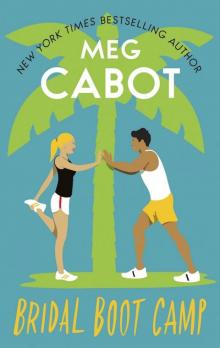 Bridal Boot Camp
Bridal Boot Camp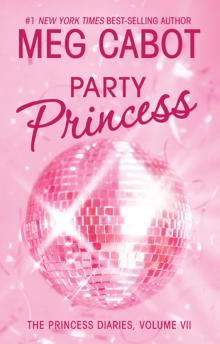 Party Princess
Party Princess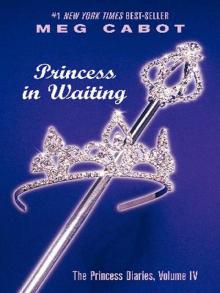 Princess in Waiting
Princess in Waiting Being Nikki
Being Nikki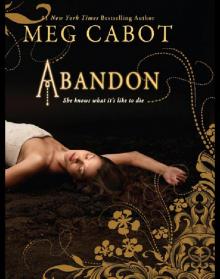 Abandon
Abandon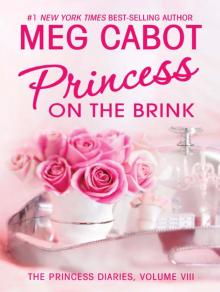 Princess on the Brink
Princess on the Brink Darkest Hour
Darkest Hour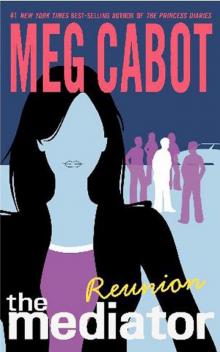 Reunion
Reunion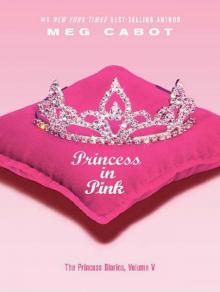 Princess in Pink
Princess in Pink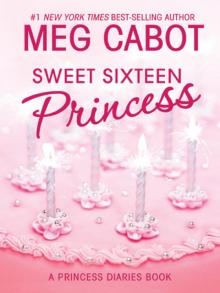 Sweet Sixteen Princess
Sweet Sixteen Princess The Princess Diaries
The Princess Diaries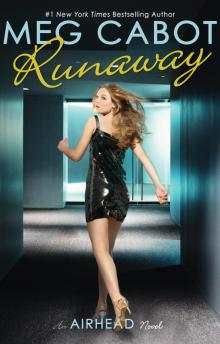 Airhead
Airhead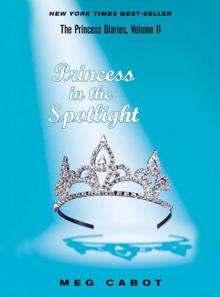 Princess in the Spotlight
Princess in the Spotlight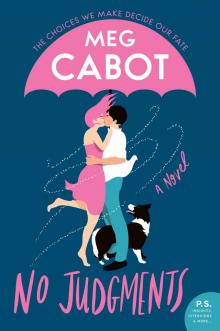 No Judgments
No Judgments All-American Girl
All-American Girl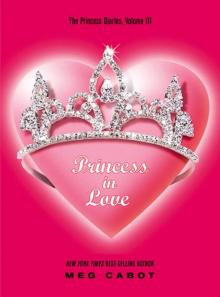 Princess in Love
Princess in Love Forever Princess
Forever Princess Haunted
Haunted Shadowland
Shadowland Twilight
Twilight Princess Mia
Princess Mia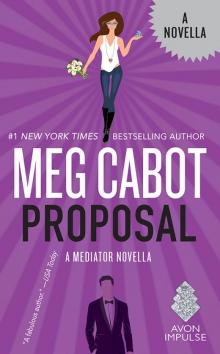 Proposal
Proposal Remembrance
Remembrance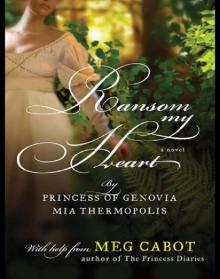 Ransom My Heart
Ransom My Heart Underworld
Underworld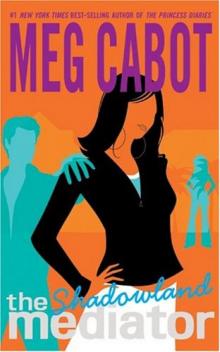 Shadowland tm-1
Shadowland tm-1 Size 14 Is Not Fat Either
Size 14 Is Not Fat Either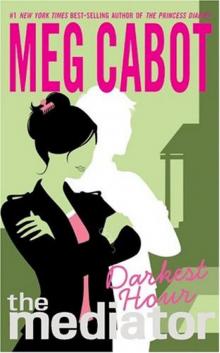 Darkest Hour tm-4
Darkest Hour tm-4 Airhead a-1
Airhead a-1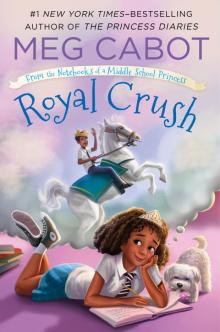 Royal Crush
Royal Crush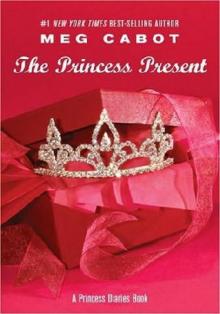 The Princess Present (princess diaries)
The Princess Present (princess diaries)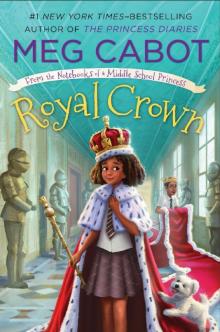 Royal Crown
Royal Crown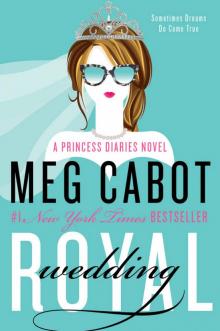 Royal Wedding: A Princess Diaries Novel (The Princess Diaries Book 11)
Royal Wedding: A Princess Diaries Novel (The Princess Diaries Book 11) Princess Diaries, Vol. X: Forever Princess
Princess Diaries, Vol. X: Forever Princess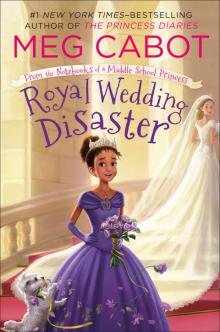 Royal Wedding Disaster
Royal Wedding Disaster Allie Finkle's Rules for Girls: Glitter Girls and the Great Fake Out
Allie Finkle's Rules for Girls: Glitter Girls and the Great Fake Out Size 12 Is Not Fat hwm-1
Size 12 Is Not Fat hwm-1 Princess on the Brink pd-8
Princess on the Brink pd-8 The New Girl
The New Girl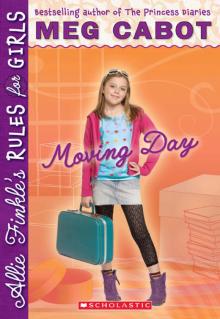 Allie Finkle's Rules for Girls: Moving Day
Allie Finkle's Rules for Girls: Moving Day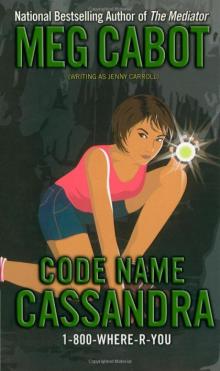 Code Name Cassandra
Code Name Cassandra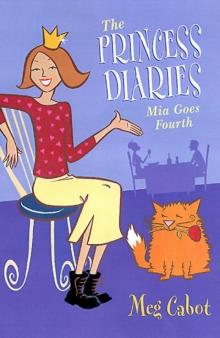 Mia Goes Fourth pd-4
Mia Goes Fourth pd-4 Sanctuary 1-4
Sanctuary 1-4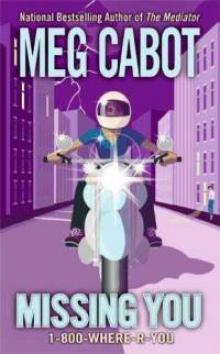 Missing You 1-5
Missing You 1-5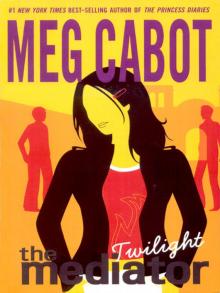 The Mediator 6: Twilight
The Mediator 6: Twilight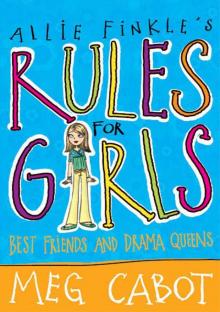 Allie Finkle's Rules for Girls: Best Friends and Drama Queens
Allie Finkle's Rules for Girls: Best Friends and Drama Queens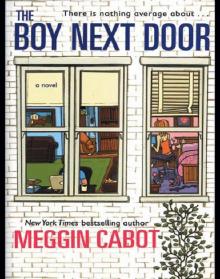 The Boy Next Door
The Boy Next Door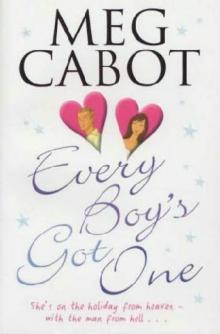 Every Boy's Got One
Every Boy's Got One Princess Mia pd-9
Princess Mia pd-9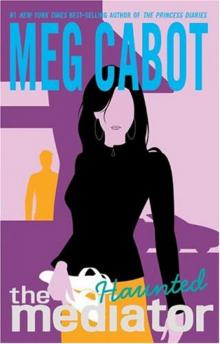 Haunted tm-5
Haunted tm-5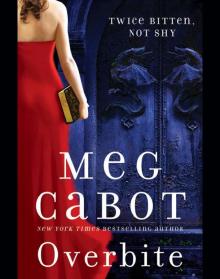 Overbite
Overbite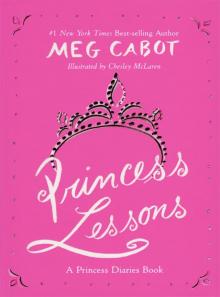 Princess Lessons
Princess Lessons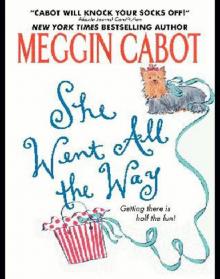 She Went All the Way
She Went All the Way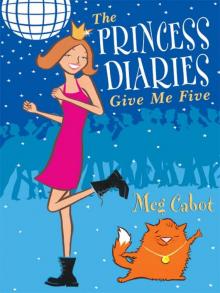 Give Me Five pd-5
Give Me Five pd-5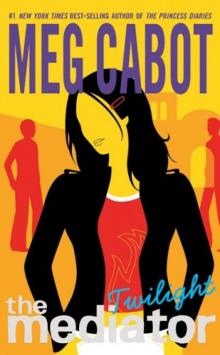 Twilight tm-6
Twilight tm-6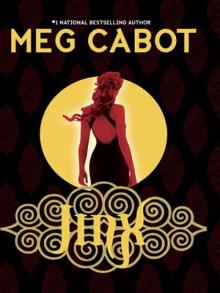 Jinx
Jinx Runaway (Airhead #3)
Runaway (Airhead #3)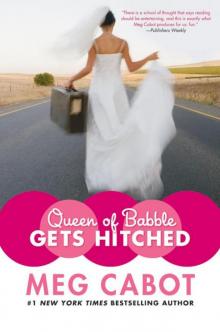 Queen of Babble Gets Hitched qob-3
Queen of Babble Gets Hitched qob-3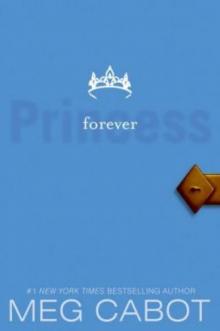 Forever Princess pd-10
Forever Princess pd-10 Queen of Babble
Queen of Babble Boy Meets Girl b-3
Boy Meets Girl b-3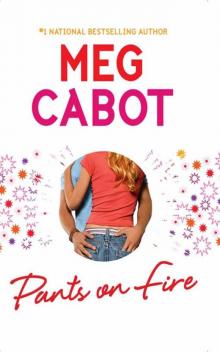 Pants on Fire
Pants on Fire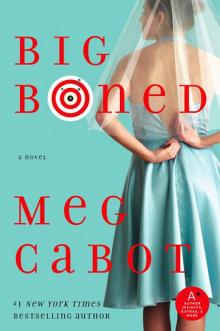 Big Boned ху-3
Big Boned ху-3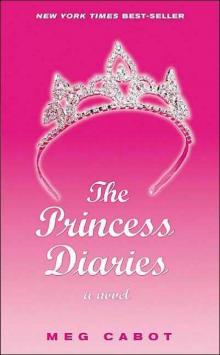 Princess' Diaries pd-1
Princess' Diaries pd-1 Size 14 Is Not Fat Either hwm-2
Size 14 Is Not Fat Either hwm-2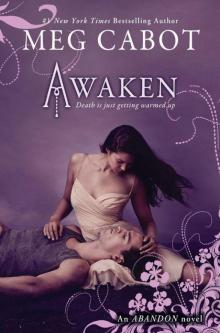 Awaken a-3
Awaken a-3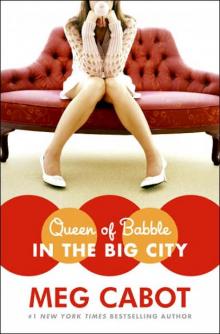 Queen Of Babble: In The Big City qob-2
Queen Of Babble: In The Big City qob-2 Nicola and the Viscount
Nicola and the Viscount Allie Finkle's Rules for Girls: Stage Fright
Allie Finkle's Rules for Girls: Stage Fright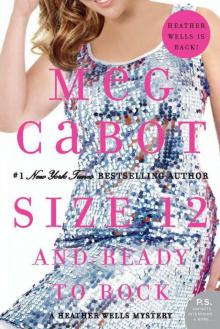 Size 12 and Ready to Rock
Size 12 and Ready to Rock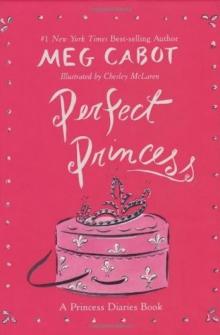 Perfect Princess
Perfect Princess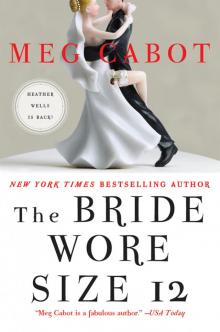 The Bride Wore Size 12
The Bride Wore Size 12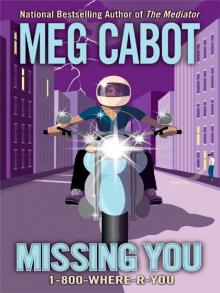 1-800-Where-R-You: Missing You
1-800-Where-R-You: Missing You How to Be Popular
How to Be Popular Queen of Babble Bundle with Bonus Material
Queen of Babble Bundle with Bonus Material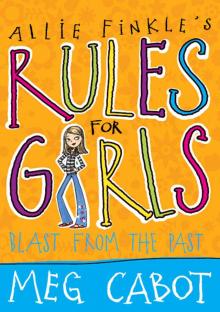 Allie Finkle's Rules for Girls: Blast from the Past
Allie Finkle's Rules for Girls: Blast from the Past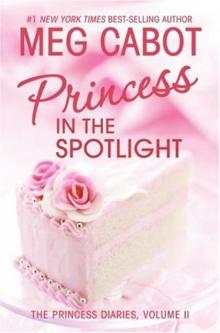 Princess in the Spotlight pd-2
Princess in the Spotlight pd-2 Ready or Not
Ready or Not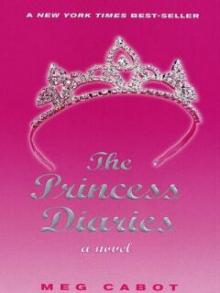 The Princess Diaries I
The Princess Diaries I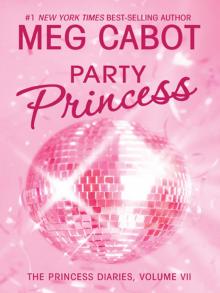 Party Princess pd-7
Party Princess pd-7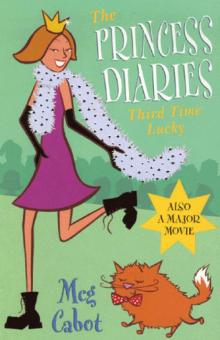 Third Time Lucky pd-3
Third Time Lucky pd-3 Stage Fright
Stage Fright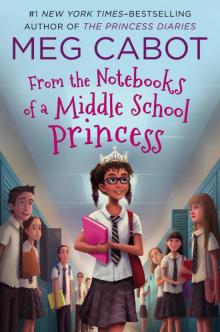 From the Notebooks of a Middle School Princess
From the Notebooks of a Middle School Princess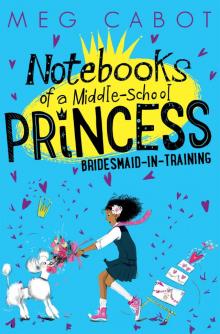 Notebooks of a Middle-School Princess Bridesmaid-in-Training
Notebooks of a Middle-School Princess Bridesmaid-in-Training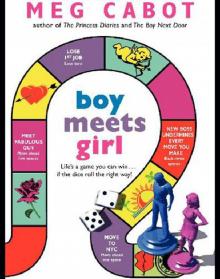 Boy Meets Girl
Boy Meets Girl Missing You
Missing You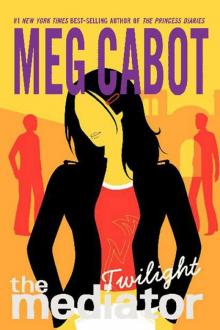 The Twilight
The Twilight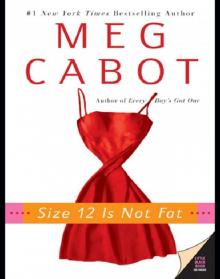 Size 12 Is Not Fat
Size 12 Is Not Fat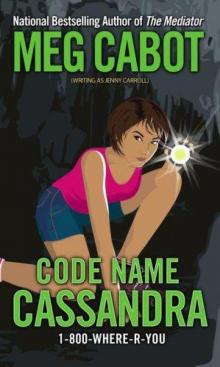 Code Name Cassandra 1-2
Code Name Cassandra 1-2 Valentine Princess
Valentine Princess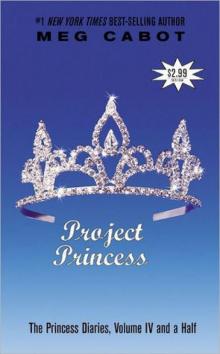 Project Princess
Project Princess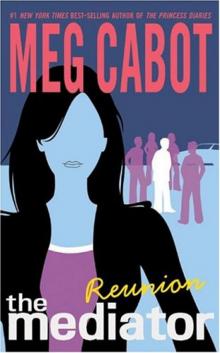 Reunion tm-3
Reunion tm-3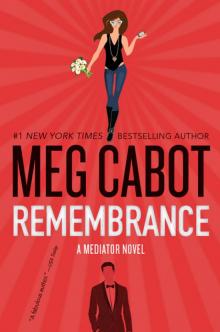 Remembrance: A Mediator Novel
Remembrance: A Mediator Novel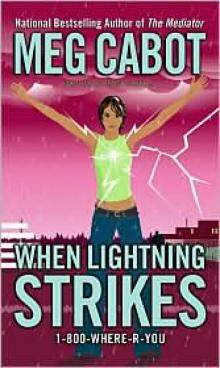 When Lightning Strikes 1-1
When Lightning Strikes 1-1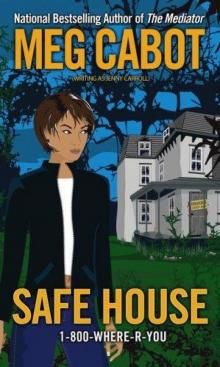 Safe House 1-3
Safe House 1-3 Teen Idol
Teen Idol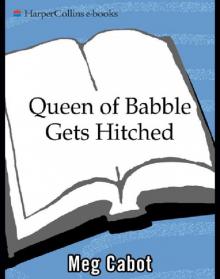 Queen of Babble Gets Hitched
Queen of Babble Gets Hitched Glitter Girls and the Great Fake Out
Glitter Girls and the Great Fake Out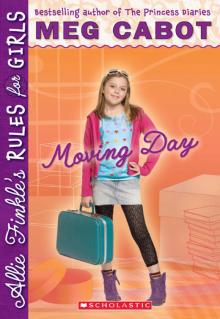 Moving Day
Moving Day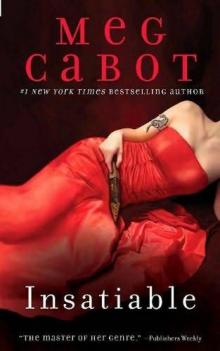 Insatiable
Insatiable All American Girl
All American Girl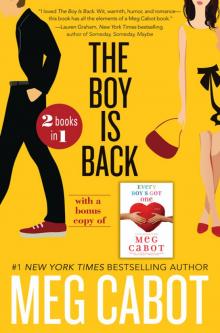 The Boy Is Back + Every Boy's Got One Bundle
The Boy Is Back + Every Boy's Got One Bundle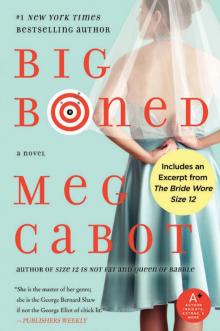 Big Boned
Big Boned Awaken
Awaken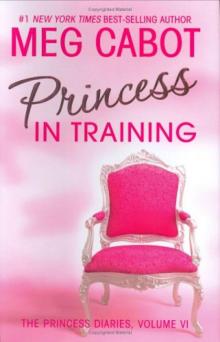 Princess in Training pd-6
Princess in Training pd-6